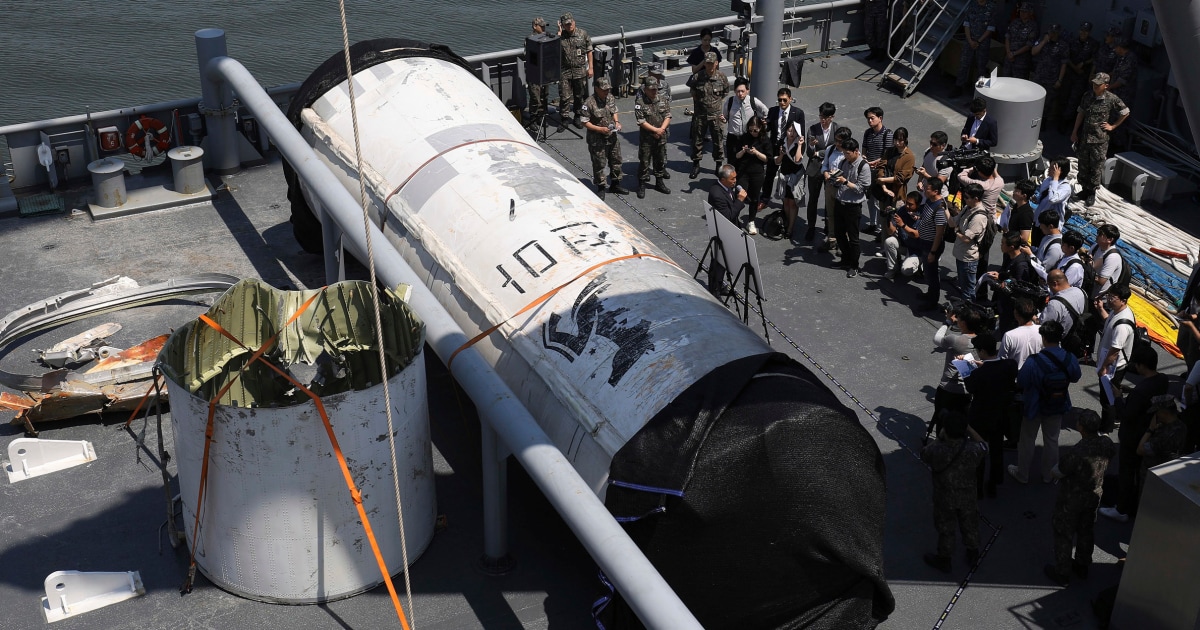North Korea’s Failed Satellite Launch: Everything You Need to Know
On May 31, 2023, North Korea launched a military satellite in an effort to boost its surveillance capabilities. However, it ended in a failure as the rocket carrying the payload plunged into the sea soon after liftoff. Here is a comprehensive guide to the implications of this failed launch:
The Failed Rocket Launch

North Korea launched its first military reconnaissance satellite on May 31, but the rocket carrying the payload crashed and burned soon after liftoff, according to the country’s official news agency. The exact cause of the failure remains unknown, but the state media reported that it was the “gravest failure.” The launch was aimed at improving North Korea’s military capabilities in monitoring U.S. military activities. This failure has sparked worldwide concern that North Korea’s leader Kim Jong Un’s military technology ambitions may be overly ambitious.
The Response from North Korea

North Korea’s ruling party held a three-day meeting that ended on June 18, during which they discussed the failed missile launch and harshly criticized the officials responsible for its preparation. The country’s leader Kim Jong Un attended the meeting where officials vowed to push for a second attempt to launch a military spy satellite and boost their nuclear capabilities. The party also discussed ensuring sufficient food supplies for the country’s citizens; supplies in the past have been limited due to periodic famines and natural disasters.
International Sanctions and Tensions
North Korea’s efforts to modernize its weapons arsenal and missile technologies have put the country under international sanctions. Its missile testing has also raised tensions with South Korea and the United States, leading to concerns about a possible global conflict. The recent failed satellite launch could be seen as a warning that these tensions are not likely to ease soon.
Impact on South Korea and Japan
The failed launch and the tension of North Korea’s military technology ambitions did not only cause concern in North Korea; it also raised alarm bells for neighboring countries like Japan and South Korea, which are particularly wary of North Korea’s military arsenal. After the launch, the South Korean government sent text messages to mobile phones throughout Seoul, urging people to prepare to move to safer places without providing further details. It sparked public confusion and security jitters in Japan and South Korea.
South Korea’s Response
South Korea’s military said it only sends phone alerts when North Korean rockets are going in the direction of South Korean territory or when falling debris is expected. The Interior and Safety Ministry blamed an error in sending a warning to all mobile phones in Seoul, while their intention was to only alert residents on a front-line island off the west coast that was closer to the missile’s flight path.
Japan’s Response
In Japan, authorities activated a missile warning system at 6:30 a.m. for Okinawa prefecture in the southwest, which was believed to be the missile’s possible landing site. However, the alert turned out to be a false alarm, as South Korea’s government later corrected its earlier announcement.
Implications for the Future

The failed satellite launch has demonstrated North Korea’s continued efforts to advance its nuclear weapons and missile technologies, which could pose a significant threat to global security. It’s also shown that North Korea’s military ambitions may be overly ambitious and has fueled international concerns over the country’s capabilities.
Conclusion

North Korea’s failed satellite launch of May 31 is a setback to their military capabilities and could fuel international tensions. The country’s ruling party meeting that ended on June 18 vowed to continue their quest to launch a military spy satellite and boost their nuclear capabilities. It is unclear when their next launch attempt will be and if it will be successful. As for neighboring countries like Japan and South Korea, they remain wary of North Korea’s missile and nuclear arsenal and continue to monitor the situation closely.
FAQs

1. Why did North Korea launch a military reconnaissance satellite?
North Korea launched a military reconnaissance satellite in an effort to improve its surveillance capabilities and monitor U.S. military activities.
2. When did the failed rocket launch take place?
The failed rocket launch took place on May 31, 2023.
3. Has there been any news regarding a second launch attempt?
North Korean officials vowed to push for a second launch attempt during the party meeting that ended on June 18, but it’s unclear when the next attempt will take place.
4. What was South Korea’s response to the failed launch?
The South Korean government sent a text message to mobile phones in Seoul, urging people to prepare to move to safer places without providing further details. This sparked public confusion and security jitters in Japan and South Korea.
5. Why are neighboring countries like Japan and South Korea wary of North Korea’s military capabilities?
Neighboring countries like Japan and South Korea are particularly wary of North Korea’s military arsenal and missile technology as it may pose a significant threat to their national security.

